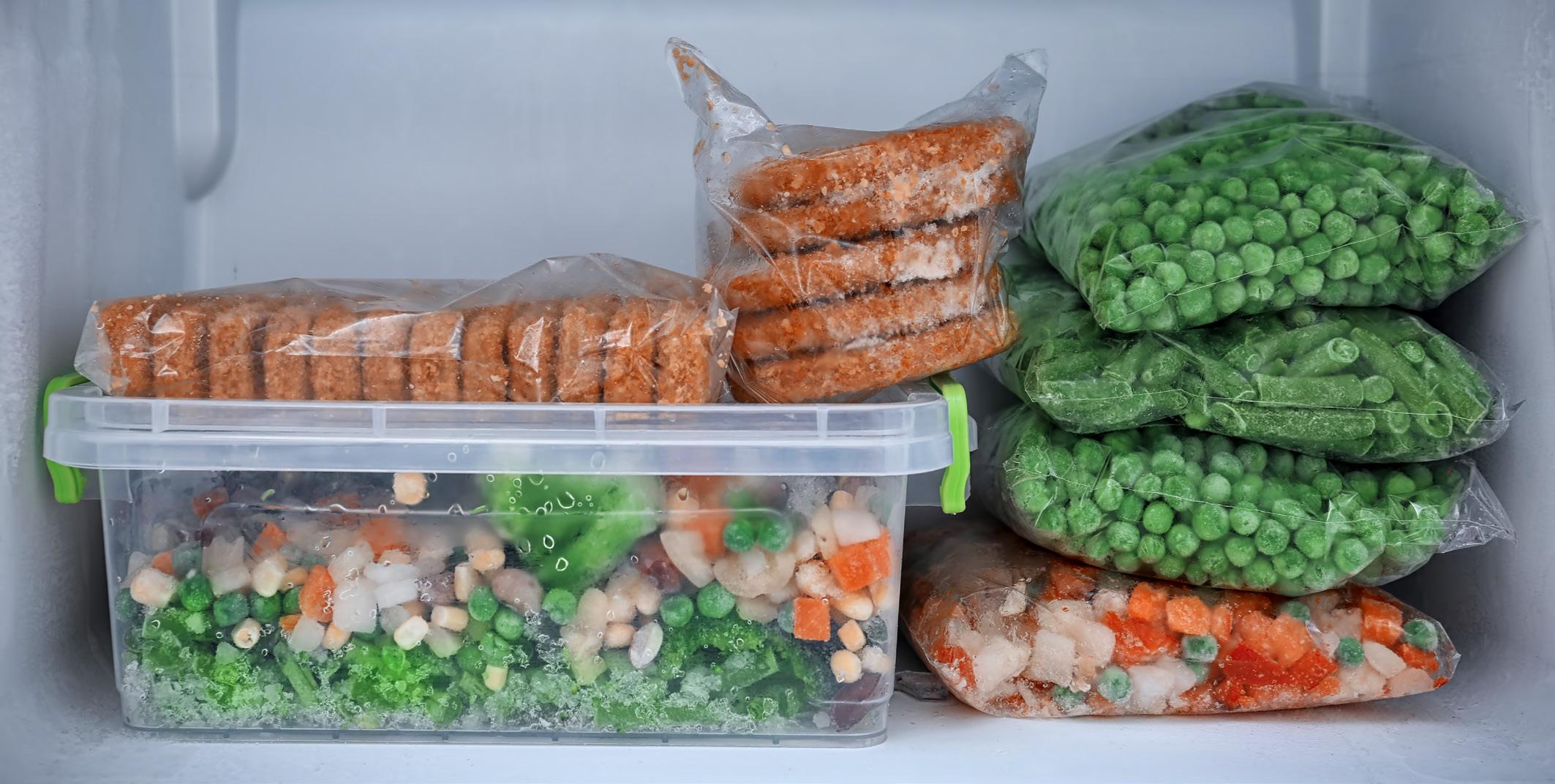
4 minute read
Household freezers help cut lock down food waste
Freezer use has increased during the lock down according to new WRAP research.
Research carried out for WRAP has shown a marked reduction in household food waste as consumers make better use of their freezers. But alongside messages about the benefits of freezing fresh produce there should be an equally strong call for people to buy ready-frozen food.
With the coronavirus crisis having a profound impact on our daily lives, WRAP used its bi-annual Citizen Survey to learn more about how lock down was affecting consumer behaviour. The survey, ‘Citizen responses to the COVID-19 lock down – food purchasing, management and waste’, compares current citizen behaviour with that reported in previous surveys.
As supermarkets continue to operate strict social distancing rules, restaurants remain closed and many people are working from home with their families, food shopping habits have inevitably changed.
The survey shows we are shopping less frequently and buying more items. Crucially, it also reveals householders have become more resourceful in managing food, using up cupboard stocks, meal planning, batch-cooking and freezing.
As consumers adopt these new habits, more are managing to reduce food waste.
New habits cutting food waste
A new-found attention to storage is reflected in the huge rise in visits to the Love Food Hate Waste Food Storage A–Z. Visits have increased by 158% since the lock down began, with people actively seeking information to help them manage their food better.
But of all the actions people reported as being useful, ‘freezing more food’ rated most useful of all by 97% of recipients. Saving leftovers, batch cooking and making a shopping list were also rated highly by more than 95% of respondents.
Marcus Gover, CEO of WRAP, said: “In this sustained period of uncertainty, UK citizens have shown how resilient they can be when it comes to managing their food. These actions should mean less food goes to waste, helping take the pressure off the supply chain and reducing the number of trips we need to make to the shops – or deliveries to our homes..”
But while respondents to the survey have been willing to adopt many new behaviours, the results reveal several important knowledge gaps around how best to reduce the amount of food thrown away. Almost 40% of people believe food such as chicken breasts must be frozen on the day of purchase, when in fact these can be frozen up to the ‘use by’ date, giving people more flexibility around when to freeze such foods.
Helen White, special advisor for household food waste at Love Food Hate Waste, said: “It’s so encouraging to see this uptake in good food behaviours, especially during challenging times. Taking on new behaviours is a big change for people, so we want to provide the answers to people’s questions and fill in these knowledge gaps where we can.”

Q. In the past month would you say you are buying the following items more often, less often or the same as always? If you don't ever buy this, select N/A
Base: 4,197 UK adults aged 18+ with responsibility for food shopping and/or preparation in the home. April 2020
Key Findings Report by WRAP, 05/05/20

Key behaviours and percentage of people saying they are doing these more often
WRAP press release, 05/05/20
Better food management
Consumers have responded to the challenge of the COVID-19 lock down with a wide range of positive food management strategies, including more pre-shop planning (checking what they already have in and making a list), better in-home food storage (fridge and freezer management) and creative approaches to cooking and preparation such as batch cooking and using up leftovers.
These ‘food smart’ behaviours should lead to less food ending up as waste. Of four of the key food items people waste most – potatoes, bread, milk and chicken, the survey shows respondents are reporting a 34% drop in how much they throw away. This reported reduction is especially welcome since people are also buying more of these items than before.
An opportunity for frozen
The encouraging results around new consumer habits and the reduction of food waste represent an opportunity for the nation to cement these behaviours in the future and re-evaluate our relationship with food.
But it also represents an opportunity for the frozen food industry to be seen as a major contributor in the reduction of food waste.
Richard Harrow, BFFF CEO, commented: “One of the biggest challenges the frozen category faces has been how to persuade consumers to use and visit their freezers more often. It is therefore encouraging that the WRAP research makes various references to the use of freezing, from consumers freezing meals to checking their freezers more often.
“However, references to frozen remain in the context of freezing meals, leftovers and as a means to extend the shelf life of fresh produce, rather than encouraging the purchase of frozen food in the first place.“
Research published in the British Food Journal shows frozen food generates 47% less food waste at home than non-frozen food, and buying frozen food is a great way to support the movement to stop throwing away ‘ugly’ fruits and vegetables that are used in frozen products but may not make it to the fresh produce aisle.
Richard Harrow added: “With wasted food costing billions every year and associated with millions of tonnes of Green House Gas emissions, it is not enough to simply encourage people to freeze their leftovers. Running in parallel to this message, WRAP should help promote the environmental and economic benefits of frozen.
"We will continue to make the case for frozen food with WRAP, as I believe frozen food has a key role to play in fighting food waste.”









